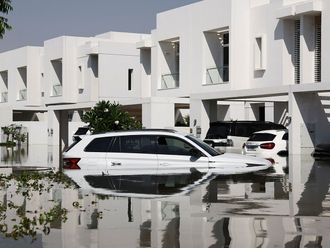London: During the boom years, bargain-hunting British investors would regularly descend on the latest European property hotspot, snapping up local housing. But almost all these emerging markets turned sour, as anyone who bought in Bulgaria, the Baltic states, Spain or rural France can confirm.
However, the relatively few people who were tempted by Poland have done remarkably well, having chosen the only EU state that avoided slipping into recession. And despite the tragic plane crash in Russia, in which the Polish president and dozens of senior public figures were killed, the country's economy is still strong.
Krakow, a city full of medieval architecture, has been the most popular with investors, attracting around 2,000 British buyers. Among those is overseas estate agent Louise Reynolds, 46, and her husband Mike, a photography executive. They bought a one-bedroom apartment in December 2007 for £58,000 (Dh327,168); the property is now worth £80,000. It is situated on the fourth floor of a renovated building in the north-eastern district of Bronowice, a 20-minute walk from the city centre. Louise was impressed with Poland's stable political system, growing economy — it is predicted to expand by two to three per cent again this year and the influx of blue-chip firms. When offered a small development to sell in Krakow, she bought an apartment herself.
"Steady access to credit rather than the easy-money culture of some countries has helped steady growth in the property market, rather than the boom- and-bust approach," she says. Louise's flat has been rented out continually since she took ownership, and her monthly running costs of about £80 are covered within the £380 monthly rental income.
Property prices in Poland did fall during the global crisis, albeit not as steeply as in other parts of Europe, before stabilising in 2009.
"Krakow is still an excellent place to invest for the medium to long-term, but the days of really quick gains are over," says Andrew Balfour, of Krakow-based PKG Real Estate. Louise Reynolds is even more optimistic. She believes six per cent on long-term lets and ten per cent for holiday homes is achievable.
"Demand is being driven locally and I expect that will continue, but some of the overseas buying will come back this year," she says.












